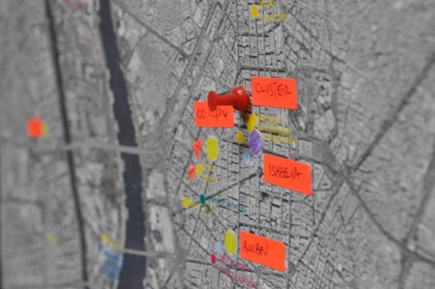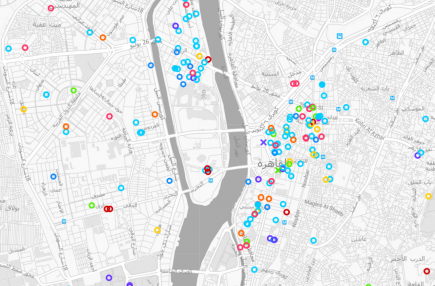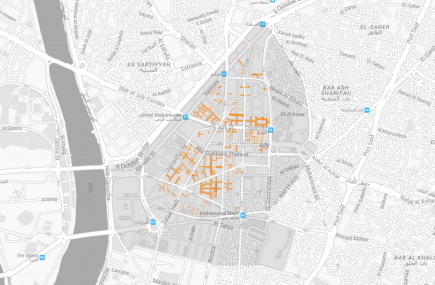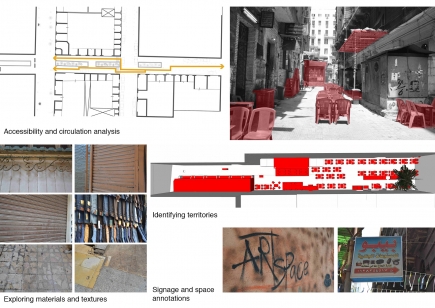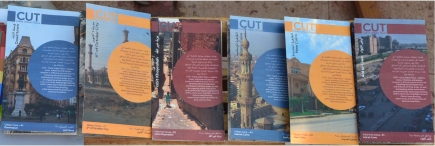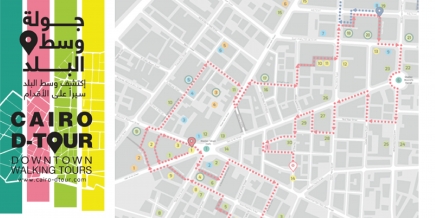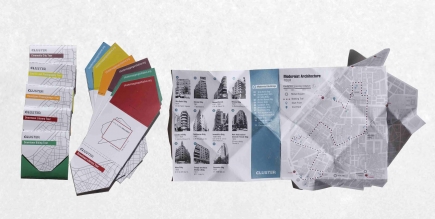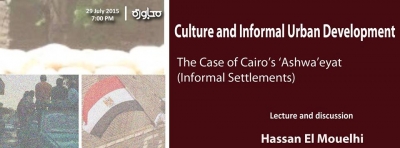| Theme: | |
| Format: | |
| Date: | Jul 29, 2015 6:00pm |
| Organized by: | Megawra - Built Environment Collective |
| Venue: | Megawra - Built Environment Collective |
| Address: | 2 Darb al-Shaykh Khalil, beside Sabil Umm ‘Abbas, off Saliba St., al-Khalifa., Cairo, |
| Website: | https://www.facebook.com/events/1628549387425645/ |
Cairo informal settlements or ‘ashwa’eyat (meaning haphazard) are the product of rapid uncontrolled urbanization witnessed in recent decades. Cairo’s ‘ashwa’eyat largely ignored by the former neoliberal state regime are frequently the only option for the rural migrants and the Cairo urban poor to fulfill their housing need. Since informal urban processes are strongly influenced and shaped by the residents, it is paramount to study their culture in relation to informality and urban space.
Culture is the complex set of values and controlling mechanisms that govern behaviors. Dismantling culture is a key for resolving its complexity. The research question is: How do different cultural factors interact with the urban physical characteristics to influence Cairo's ‘ashwa’eyat development?
Through empirical research analysis of five case study areas, using Grounded Theory and qualitative methods, a set of cultural factors pertaining to Upper Egyptians were identified: 1- Origin; 2- Religion; 3- Relation to urban economy (i.e., income and profession); and 4- Relation to urban society (i.e., government, residents of formal districts, media, political transformation and revolution). This was used to analyze the residents’ use patterns of urban space and the residents’ power relations. The comparative analysis shows that the cultural factors and urban physical space interact over time which provides an explanation for residents’ use patterns of urban space and therefore to informality in ‘ashwa’eyat. Phases of informal urban development were identified: initial phase, consolidation phase and commodification phase. Informality becomes the ordinary, a way by which the residents find mechanisms to exist, and to provide themselves with houses and means for earning money based on several mechanisms and values like social cohesion, trust and cooperation.
Lecture by:
Dr. Hassan ElMouelhi
Research Associate
Habitat Unit
Chair of International Urbanism and Design
School VI Planning Building Environment
Department of Architecture
and Urban development department-Campus El Gouna
Technische Universität Berlin
A Google map showing the directions to Megawra al-Khalifa:http://goo.gl/lvAu0C
